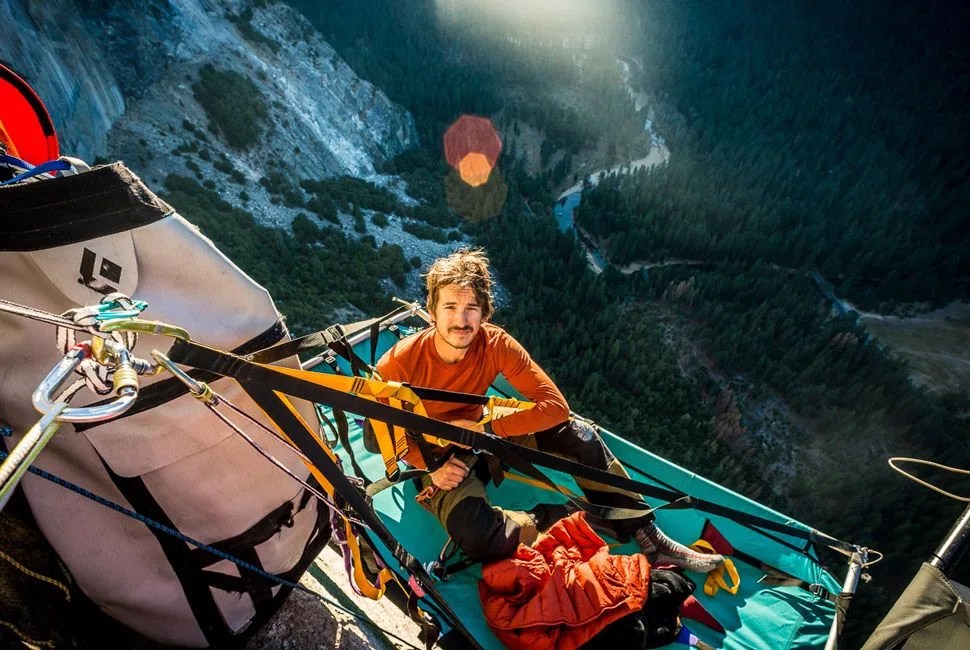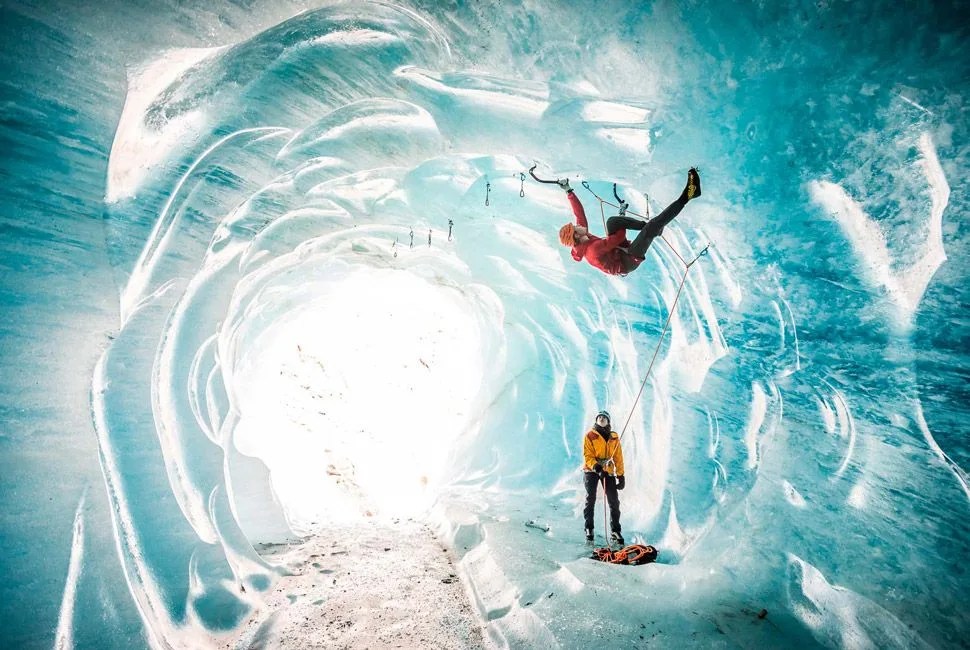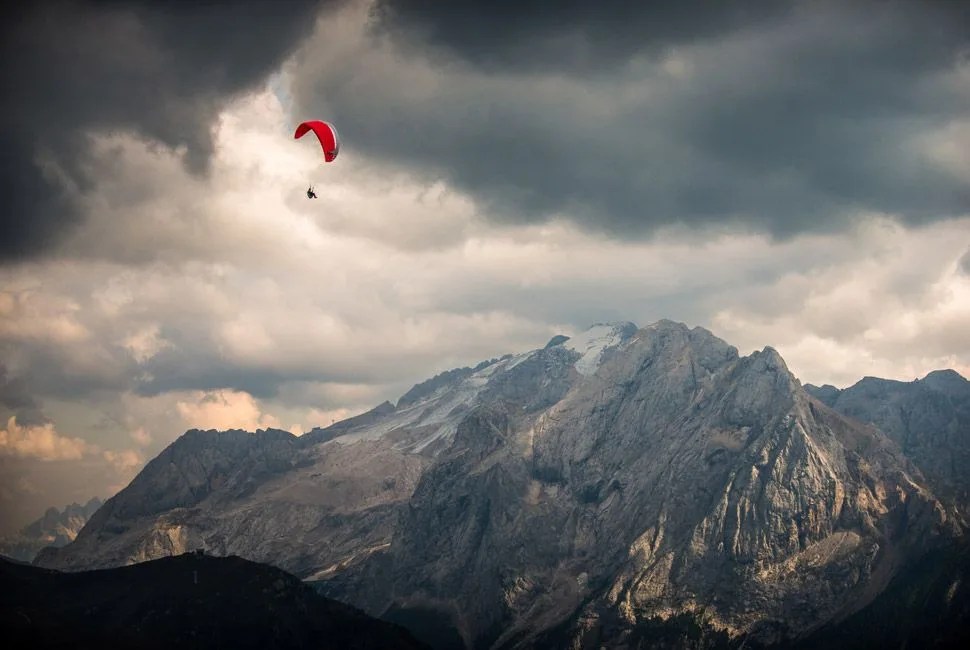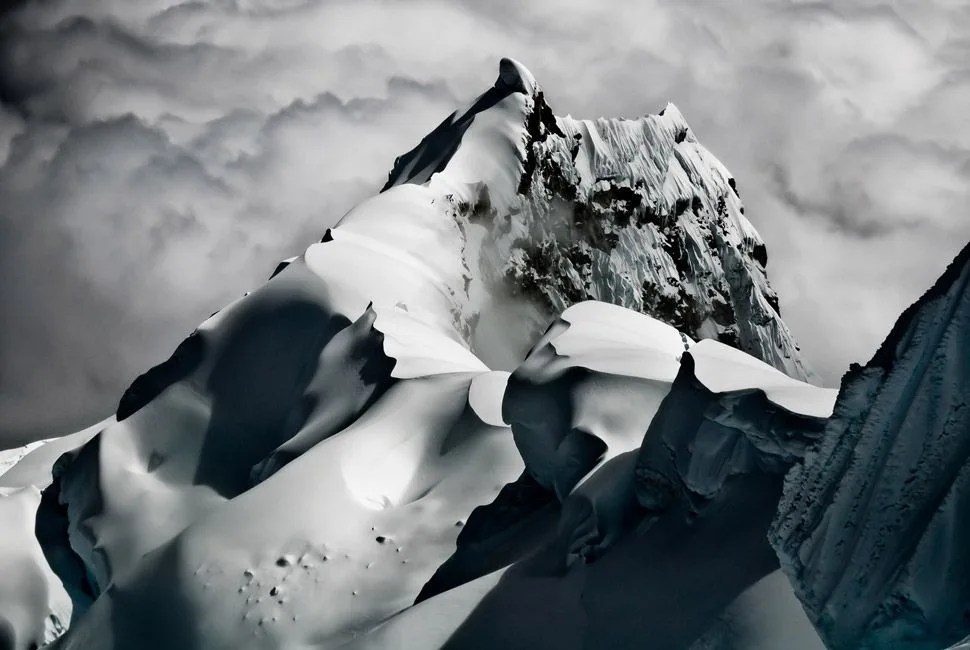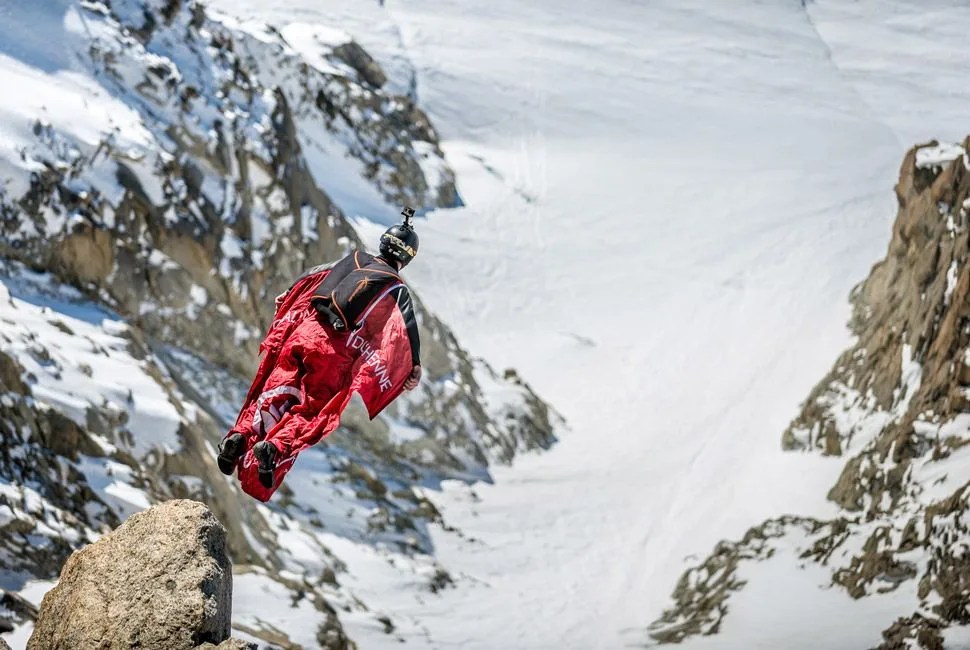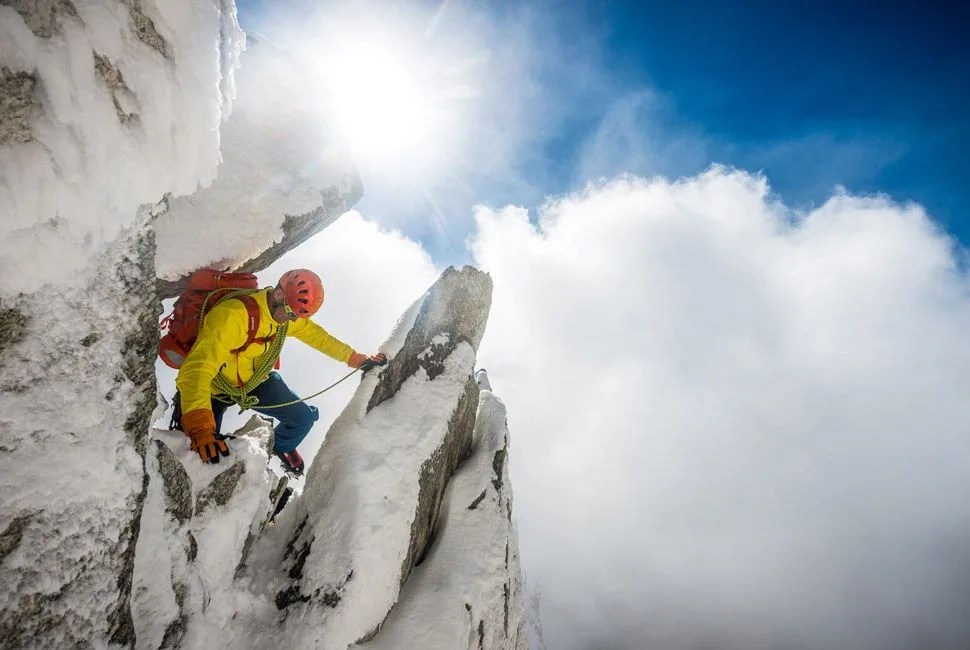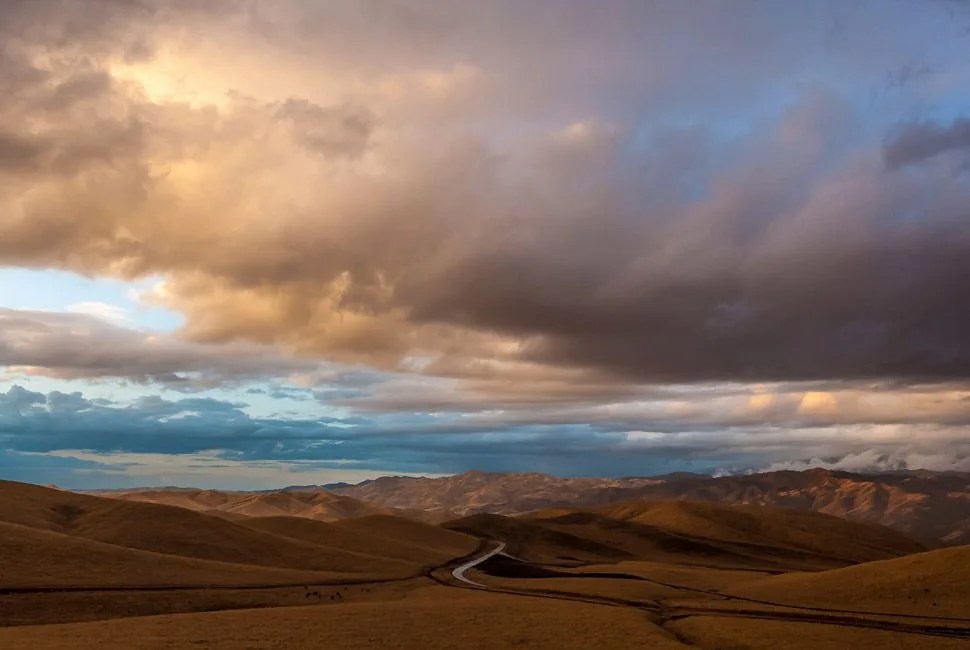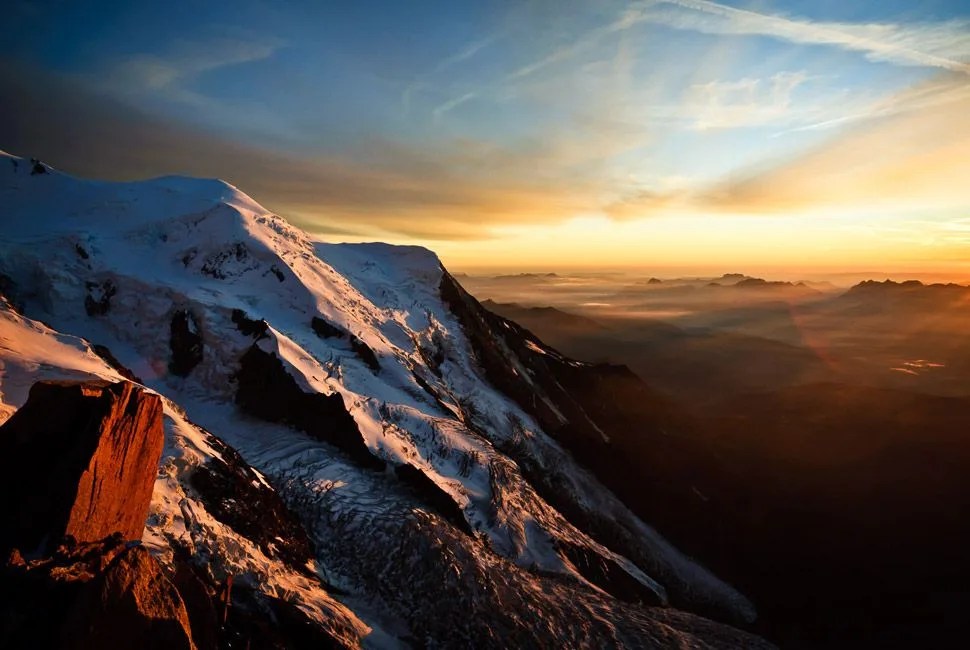Alex Buisse is an adventure photographer, in the sense that the photographs he takes most often feature adventurers. Climbers, base jumpers, mountain bikers — the subjects of his photographs do adventurous things. But how Buisse shoots them is best described as photojournalism. He is concerned with capturing the human emotion of triumph in adventure, not the simple relaying of an accomplishment. How did that summit feel? What is the emotive connection between the triumph of achieving something extremely dangerous and the heart of the adventurer? And how to capture that on his camera’s sensor?
For starters, Buisse would tell you to have the camera out. Never store it in your backpack. And then, it’s a matter of finding the right perspective on the right moment — a task that’s a bit foreboding at 9,000 meters. Cameraman becomes climber, and although Buisse downplays his own acumen as an adventurer, he’s no slouch. He lives in Chamonix, France, the mountaineering capital of the world, and when we caught up with him a few weeks ago, he was preparing for an expedition to the arctic, by ski. He’s humble about his craft and his capabilities (he’s shot for Outside, Climbing, Sports Illustrated, Patagonia and Arc’teryx), but his well of knowledge is deep. His Reddit Photo Class is an extensive source of photo geekery, and in our time together he shared both experiences and a few tricks of his trade.
Q. So you’re heading out to the North Pole next week, is that right?
A. Yes, that’s right, on Thursday.
Q. Wow, that’s awesome. How long you going to be out there?
A. Six or seven days skiing on the ice, and then the whole trip is a bit over two weeks.
Q. Wow, that’s going to be great. And your knee is back? I was reading that you severed an ACL.
A. Yeah, that was over a year ago now, so I’ve had a complicated rehab and now it’s all good. I’ve been skiing pretty hard over the last couple of months with no problem, so, just a bad memory.
Q. Good. Well, tell me a bit about your history. You were finishing up your PhD and then as soon as you turned in your final thesis you decided to be a professional photographer. What led to that decision?
A. Well, so I did science, I did mathematics for almost 10 years at university. And the last four or five years of the PhD I was very lucky to work with wonderful people, but I did not like the feeling. I did not enjoy doing science. I stopped caring about science. And it became really clear that this was not something I wanted to do for my whole life. So I had to find something else to pay the bills, pretty much. And throughout the PhD I had gotten more and more into photography and climbing and into mountains. So it was a bit natural to try and do that for a living and see whether it would work out. I thought that I would try it for 6 months or a year and realize there was no way to make it work and try to do something else, though I had no idea what that something else would be. But I wanted to give it a good go. And much to my surprise it actually worked out really well.
Throughout the PhD I had gotten more and more into photography and climbing and into mountains. So it was a bit natural to try and do that for a living.
